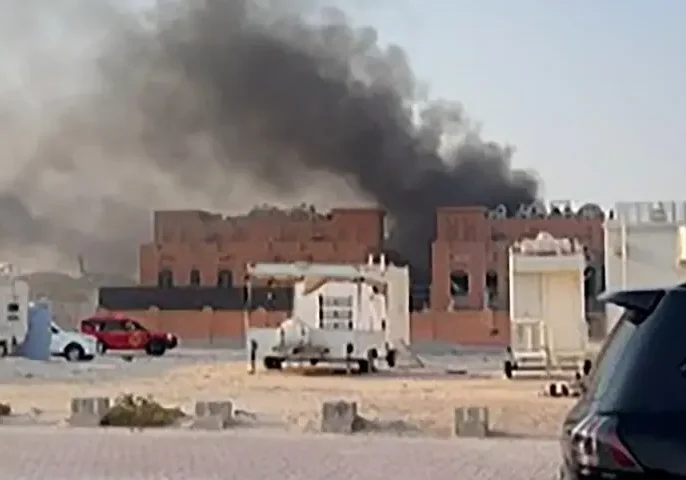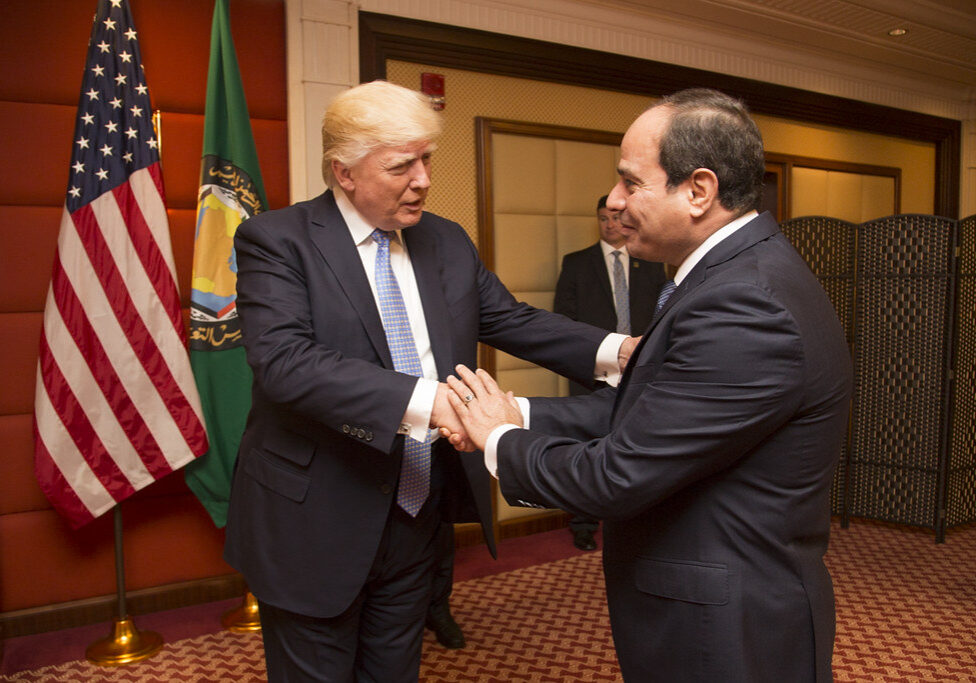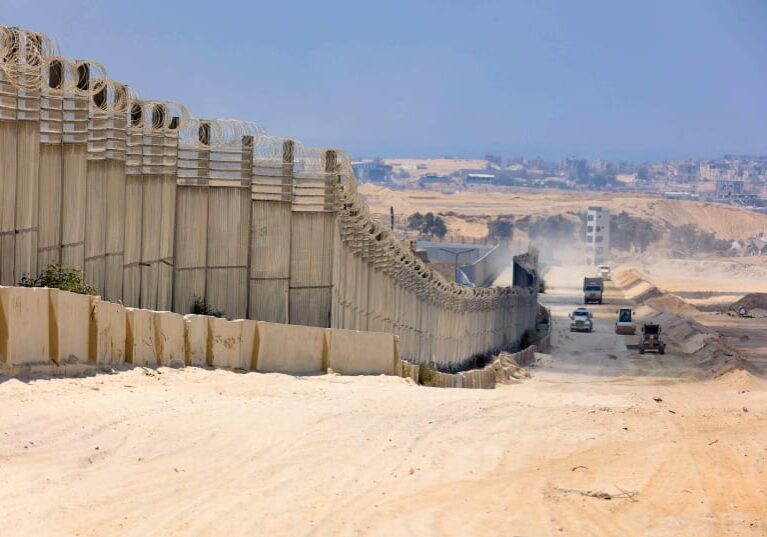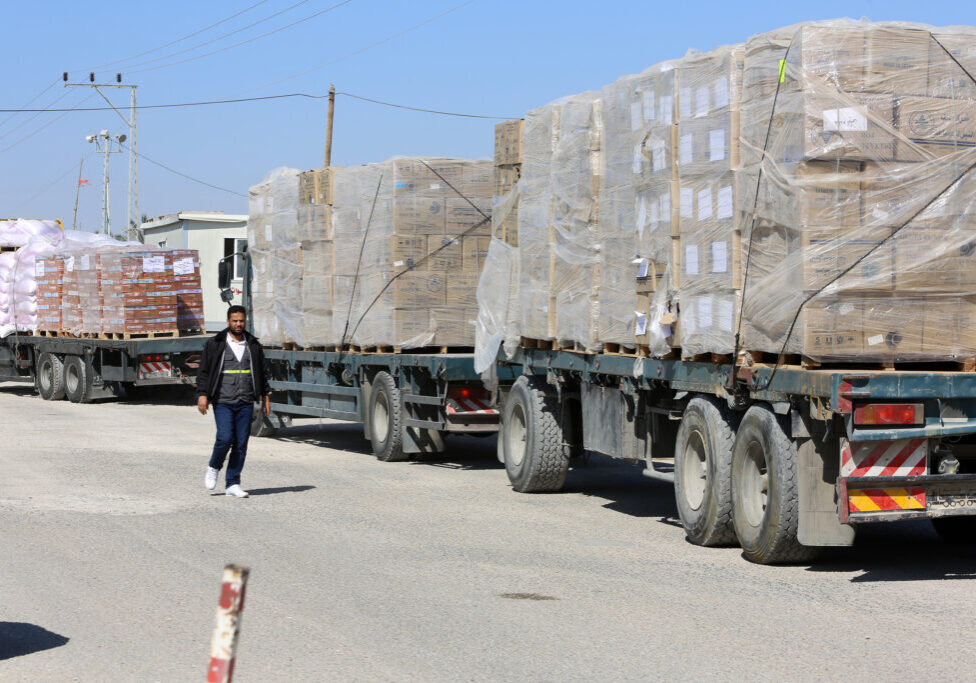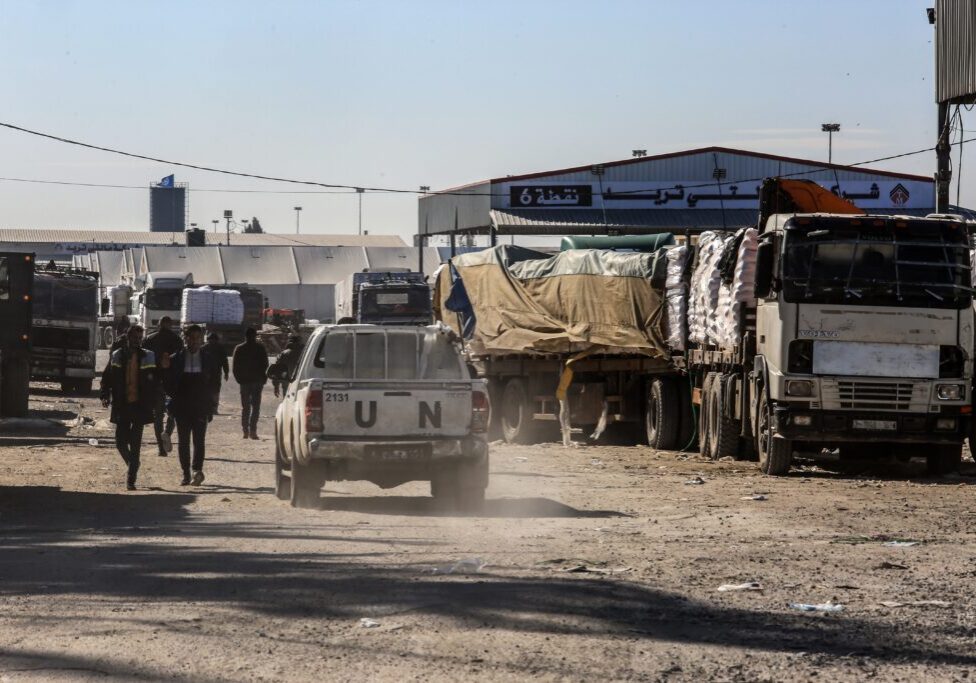Australia/Israel Review
Unity Over Progress
Mar 1, 2007 | Robert Satloff
By Robert Satloff
The Fatah-Hamas agreement mediated by the Saudis in Mecca in the first week of February revives a long tradition in Palestinian politics of prioritising internal unity over progress toward strategic objectives. With Palestinian Authority (PA) President Mahmoud Abbas compromising on almost every critical issue to reach accord with the leadership of Hamas, the agreement blurs the distinction between moderate and extremist in the Palestinian camp.
The Road to Mecca
After Abbas nominated Hamas leader Ismail Haniyeh to form a PA cabinet in February last year, the international community’s response was unusually swift and decisive. Despite having raised no formal objection to Hamas’ participation in Palestinian legislative elections, the Quartet – the United States, European Union, Russia and the UN – suspended direct aid to the Hamas-led PA government and conditioned its renewal on the government’s approval of three conditions: formal recognition of Israel, renunciation of violence and terrorism, and commitment to implementation of existing Israeli-Palestinian agreements. For its part, Israel participated in the international financial boycott of the PA government by withholding the transfer of tax revenues collected by Israeli customs authorities and national insurance institutions. After several months, the Quartet adopted a plan to relieve financial pressure on certain segments of the Palestinian population by channeling funding through specialised international agencies and non-governmental institutions. While this had the unintended effect of reducing the squeeze on the Hamas-led government, popular protests by key constituencies suggested that the policy of financial isolation was beginning to show signs of success.
In recent weeks, rising pressures have spilled over into open, armed conflict between Hamas and Fatah, with violence that more accurately resembles gang warfare (drive-by shooting, kidnappings, etc) than it does civil war. By early February, 130 Palestinians had been killed in internecine fighting, which has reportedly gripped Palestinian society with a Baghdad- and Beirut-like sense of fear and foreboding. The political complement to these armed clashes has been an on-again/off-again pattern of showdown and retreat between Abbas and Hamas. In recent weeks, Abbas has at times threatened the Samson-like option of bringing down both his own presidency and the Hamas government by calling new presidential and legislative elections, only to follow up such threats with repeated offers to go anywhere – Cairo, Damascus, now Mecca – to reach a new understanding with Hamas that would end internal fighting and break the wall of international isolation around the PA government. For its part, Hamas has remained remarkably resolute, offering no substantial concessions to achieve these two goals.
Abbas’ decision to reach an accord with Hamas rather than face Hamas in an electoral showdown is especially puzzling given that it comes at a moment when both the United States and Israel are pursuing risky political moves to revive the dormant Israeli-Palestinian peace process and strengthen Abbas’ own position vis-à-vis Hamas. On the political front, this includes a US commitment, evinced in word and deed by Secretary of State Condoleezza Rice, to invest political capital in defining a “political horizon” for Palestinians, an initiative which could only be made possible by a generous Israeli interpretation of the terms of the Roadmap to allow for negotiations over the shape of a permanent status agreement (the third phase of the Roadmap) before an effort had even been made to dismantle terrorist infrastructure (the first phase of the Roadmap). In terms of the real-life battle between Abbas and Hamas that seemed to be raging in the streets of Gaza and the West Bank, Washington and Jerusalem put their money where their mouths were with an US$86 million commitment by the United States to bolster security forces controlled by Abbas and a $100 million transfer of blocked tax revenues from Israel to Abbas-controlled accounts.
Inside the Mecca Accord
Against this backdrop, and after the failure of previous attempts by Egypt and Syria to mediate a Fatah-Hamas agreement, King Abdullah of Saudi Arabia invited all the key leaders – for Fatah, Abbas and a team that included leading Fatah strongman Muhammad Dahlan; for Hamas, Haniyeh and Hamas political bureau chief Khaled Meshal – for negotiations in Mecca. After two days of talks, greased with the promise of massive Saudi financial assistance, the delegations reached an agreement, part of which is contained in a Fatah-Hamas accord and part in a new letter from Abbas to Haniyeh, in which the PA president asked the Hamas leader to form a new government. Piecing together these two documents, the key terms are as follows:
Agreement to foreswear violence as a tool to settle Hamas-Fatah disagreements and “to stress the importance of national unity as the basis for…confronting the occupation.”
Agreement on the composition of a “national unity government” to be headed by Haniyeh that would include eleven additional ministers nominated by Hamas; eight ministers nominated by Fatah; and one minister allotted to each of the other four political parties represented in the Palestinian Legislative Council. One of the Fatah appointees will be independent Ziyad Abu Amr to serve as Foreign Minister. By consensus, former Finance Minister Salaam Fayyad will return to that position. The Interior Minister, who will be an “independent” appointed by Hamas and approved by Fatah, has still not been named.
Agreement to speed internal reforms within the Palestine Liberation Organisation that will, for the first time, bring Hamas into the PLO and even award it a major role in the PLO’s governance and leadership. The PLO, it is important to recall, still remains the official Palestinian representative in peace talks with Israel and other international diplomacy.
In addition to the distribution of ministries, the other main issue to occupy negotiators was the wording of a paragraph in Abbas’ letter to Haniyeh that was supposed to address the Quartet’s conditions. The full text of that paragraph is as follows:
“Third, I call upon you as prime minister of the next government to abide by the interests of the Palestinian people and to preserve their rights and maintain their accomplishments and develop them and work on achieving their national goals as ratified by the resolutions of the Palestinian National Council meetings and the Basic Law articles and the national conciliation document and Arab summit resolutions and, based on all this, I call upon you to respect the Arab and international legitimacy resolutions and agreements signed by the PLO.”
As both Hamas and Fatah officials have made clear since the signing, nothing in the accord can be viewed as addressing the first two of the Quartet’s conditions (recognition of Israel and renunciation of violence) and only through a tortuous interpretation of the final clause can even a loose connection be made to the third condition (accepting previous Israeli-Palestinian agreements). Neither “Israel”, nor “peace process”, nor “political horizon”, nor even the word “peace” itself can be found. Not only is there a huge difference between “respecting” a resolution and agreeing to be bound by it, but because Abbas failed specifically to cite which Palestinian, Arab, and UN resolutions he asked Haniyeh to “respect”, the Hamas leader could pick and choose from those he likes and those he dislikes. This critical paragraph is, in other words, worse than meaningless.
Arab Winners and Losers
It is apparent from a reading of the key Mecca documents that the unity accord was only made possible by Palestinian Authority (PA) President Mahmoud Abbas’ decision to compromise, not by concessions from Hamas. There are four possible explanations for Abbas’ actions: (1) He looked at the correlation of forces between Hamas and Fatah and reasoned that Hamas was so powerful that he and his allies could not win a political showdown, even with the active support of Israel and the United States, and therefore hoped to buy time for Fatah’s rehabilitation; (2) He was so appalled at the prospect of intra-Palestinian violence and the prospect of civil war that he decided to pay a stiff price for internal peace; (3) He believed that the cover of a unity government may provide him with the protection to pursue US-backed diplomacy with Israel that will, eventually, allow him to turn on his new Hamas partners; or (4) He is not nearly as committed to a permanent peace agreement with Israel, reached through peaceful means, as his reputation has led observers to believe. (A recent hate-filled speech by Abbas, in which he praises such Palestinian “martyrs” as former Islamic Jihad chief Fathi Shiqaqi, lends tragic credence to this latter view.) While each is possible, none – not even the most optimistic scenario, option number three – instills hope and confidence in Abbas’ strategic vision and leadership skills.
Hamas clearly emerges strengthened by the Mecca Accord. In exchange for some flexibility on naming ministerial portfolios and a vaguely worded statement about “respect[ing]” unspecified resolutions and agreements, Hamas received a huge political boost in the form of an embrace by both Abbas and the Saudi leadership.
Among Arab countries, the main winner from the Mecca deal is Saudi Arabia. Whether or not the deal survives the vicissitudes of Palestinian politics, merely engineering the Hamas-Fatah accord shows that Riyadh could succeed in significant regional diplomacy where two other Arab powers – Cairo and Damascus – could not. To a certain extent, the Saudis were default mediators: Hamas has consistently sought to embarrass Egypt, refusing to buckle under pressure to release abducted Israeli Cpl. Gilad Shalit, whereas Abbas knew that striking a deal under Syrian auspices would add insult to American injury. Nevertheless, the Saudis will now bask in the glow of inter-Arab peacemaking. If Americans cry foul at Saudi efforts to legitimate Hamas – and so far, the Quartet (the United States, European Union, Russia, and the UN) has actually welcomed, not criticised, Saudi efforts – Riyadh will claim that its mediation prevented Iran from gaining deeper inroads among Palestinian radicals. It is unclear whether King Abdullah of Saudi Arabia was actually animated by the strategic imperative to rally Sunni Arabs of all political stripes to confound Iranian schemes to extend Shi’ite influence throughout the Sunni Arab world, or was merely moved to action by distasteful images of Palestinians killing Palestinians. What is clear, though, is that the Saudi “achievement” at Mecca came at the expense of legitimising a radical organisation that couldn’t even specifically endorse the Saudi peace plan.
A second Arab winner in the Mecca deal is Syria. Palestinian political unity means that the chances have dimmed for diplomatic progress on the Palestinian track; Damascus will view this as a net positive, because it means there may be an opportunity to stoke interest in reviving the Syrian track. But if the past is prologue, the Syrians are not likely to take advantage of their own good fortune by making their offer to negotiate with Israel more attractive. Instead, Syrian President Bashar al-Assad is likely to undermine his own position by taking steps – such as issuing bellicose statements, delivering dangerous weapons to Hezbollah, or extending operational aid to some radical terrorist organisation – that makes it impossible for the Israeli Government to consider this option.
Among Arab countries, the major losers from the Hamas-Fatah accord are Egypt and Jordan. In recent months, Cairo has been subject to a bout of national self-doubt, based on its inability to throw its traditional weight around in inter-Arab issues. Egypt’s embarrassing failure to arrange a Hamas-Fatah accord will feed the growing sense around the region that the Egyptian emperor has no clothes. When Egypt looks for new opportunities to exert influence, as is likely, Washington needs to ensure that Egyptian ambitions are directed in a positive direction (such as leading Arab support to promote stability in Iraq) and that Egypt doesn’t compete for the radical share of the Arab popularity market (such as investing in an “Arab nuclear option” to counter the Iranian nuclear program).
But whereas Egypt may suffer psychological fallout from the Saudi success, Jordan may be on the verge of a major strategic setback. King Abdullah II, after all, has argued that failure to achieve Israeli-Palestinian peace within the coming period may mean that prospects for peace will never be realised – and there can be no doubt that the Hamas-Fatah accord certainly set back whatever hopes for diplomatic progress may have existed. One implication is that some in Israel are likely to give a second look to the policy of unilateral withdrawal, which Jordanians view with dread because it is likely to create a West Bank vacuum that Hamas will fill. Even if Israel does not go down that route, which has been discredited inside Israel by the rise of Hezbollah and Hamas following withdrawals in Lebanon and Gaza, the strengthening of Hamas at the expense of Abbas can only have the effect of emboldening the “Hamas-wing” of the Islamic Action Front inside the Hashemite kingdom.
Israel: Back to February 2006?
In Israel, the political echelon seems to be unsure of its response to the Mecca Accord. At his weekly cabinet meeting a few days after the accord, Prime Minister Ehud Olmert said his government “neither accepts nor rejects” the accord, which seemed not to keep pace with the fact that some key governments, such as France and Russia, had already reacted positively to the idea of including Hamas in regional diplomacy. For Israel, critical decisions need to be made, such as the continuation of financial and security support to Abbas. In essence, Israel finds itself today in exactly the same situation it was in exactly a year ago, when Abbas first appointed Haniyeh to serve as prime minister. At the time, Olmert, Tzipi Livni and other leaders of the Kadima Party said the right approach for Israel was to see no distinction between Abbas and Haniyeh, a position that evolved considerably over time. Returning to that position today will require an abrupt shift in Israeli diplomacy, which can only be achieved in full co-ordination with the United States.
Dilemmas for Washington
The Mecca Accord presents the United States with more serious dilemmas than any other party. At the two ends of the spectrum, Washington’s options are as follows:
· to declare that Mecca has erased any distinction between moderate and radical in the Palestinian camp, suspend all efforts at direct assistance to Abbas, and curtail efforts to negotiate an Israeli-Palestinian “political horizon”.
· to consider Mecca a purely internal, and quite insignificant, intra-Palestinian affair that has no bearing either on existing international conditions for a renewal of aid to the PA, which still stand, or on diplomatic efforts to pursue Israeli-Palestinian diplomacy, which would go forward.
The Bush Administration is unlikely to want to pursue either route to its logical conclusion. It would prefer not to take a public position against Palestinian unity, even if such unity comes at the price of progress toward peace. Yet it surely realises that, with Mecca, the sun has set on the pursuit of a “political horizon”.
To complicate matters even further, this setback to one key initiative advanced by the administration comes at a time when another key US-backed initiative – UN Security Council Resolution 1701, the Lebanon ceasefire accord – is under pressure as well. Here, the problem is repeated reports of substantial efforts by Syria to transfer weapons to Hezbollah in direct contravention of the resolution. Last week, for example, German media reported the transfer of one hundred containers of Russian-made anti-tank weapons from Syria to Hezbollah, under the watchful gaze of Iranian Islamic Revolutionary Guard Corps officers. Israeli Defence Minister Amir Peretz has publicly warned that, given the ineffectiveness of international guarantees preventing Hezbollah’s resupply, Israel may have to take its own action.
Collectively, these setbacks suggest that the Bush Administration needs to revisit some of its key presumptions about the potential for stability and progress on various Arab-Israeli fronts and what is necessary to achieve them. Before taking further incremental steps on either the Palestinian or the Lebanese front, it is essential for Washington to reach strategic understandings with two players – the Israelis and the Saudis – on the direction of policy. With both Jerusalem and Riyadh, there are obvious tensions that need to be addressed. The Hamas issue is central: Strategically, both Israel and Saudi Arabia support the idea of Sunni co-operation to counter the rise of Iranian influence, but tactically, they differ as to whether Hamas is part of the problem or part of the solution.
In this context, Washington might explore whether the potential exists for Israel and Saudi Arabia to engage more publicly in their own diplomacy. Given the limits on what can be achieved between Israelis and Palestinians after Mecca, expanding the orbit of regional diplomacy may make sense, especially if the Saudis are interested in arguing that Mecca not only ends Palestinian infighting but actually contributes to regional security. Since both Israelis and Saudis say they are keen to prevent the spread of Iranian influence in the Levant, the two sides would seem to have much to talk about, not least of which is a practical implementation plan for the eventual all-Arab recognition of Israel, the cornerstone of the Saudi peace initiative. This would, in essence, be the negotiation of an Arab Roadmap that would complement the existing Quartet Roadmap and would provide Israel with a countervailing set of incentives to those that the pursuit of a “political horizon” provides for Palestinians.
Dealing with regional diplomacy is no substitute for addressing the Mecca accord itself. Here, there is no avoiding the fact that while the United States welcomes Sunni Arab cooperation to counter rising Iranian influence, it cannot countenance the legitimisation of an unreformed extremist organisation like Hamas. It might have been a close call if Hamas had grudgingly uttered a formula close to the Quartet’s conditions, but Hamas won the brass ring without having to compromise. In this regard, and in the absence of some other attractive regional option to occupy diplomacy, US policy should reconsider the original intent of President Bush’s landmark 2002 Rose Garden address, delivered with then-National Security Advisor Rice at his side: “I call on the Palestinian people to elect new leaders, leaders not compromised by terror. I call upon them to build a practising democracy, based on tolerance and liberty. If the Palestinian people actively pursue these goals, America and the world will actively support their efforts… And when the Palestinian people have new leaders, new institutions, and new security arrangements with their neighbours, the United States of America will support the creation of a Palestinian state whose borders and certain aspects of its sovereignty will be provisional until resolved as part of a final settlement in the Middle East.”
Dr. Robert Satloff is Executive Director of The Washington Institute for Near East Policy. © Washington Institute, reprinted by permission, all rights reserved.
Tags: Egypt

